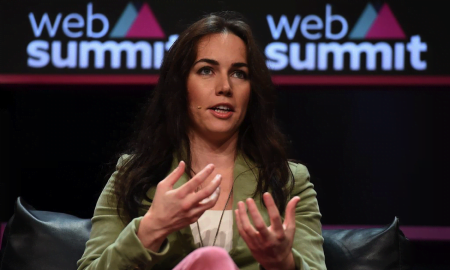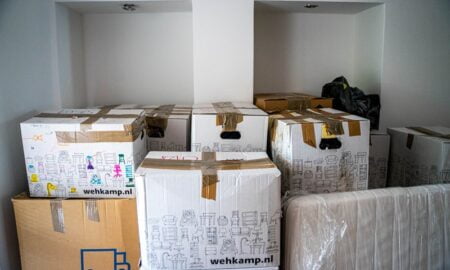





The Transnational Institute (TNI) in the Netherlands is issuing an open call for essays, articles, short papers, info graphics and aesthetic coordinated efforts for its anticipated State of Power report propelled in late January 2019 to correspond with the World Economic Forum in Davos. In 2019, we are especially looking for accessible, engaging essays and artistic expositions that explore the issue of finance and power.
TNI’s yearly State of Power reports launched first time in 2012. Since then it turned into must have reference point for natives, activists and scholastics concerned with understanding the nature of power in our globalized world so as to inform struggles for justice.
With a blend of convincing infographics and insightful essays, State of Power has analyzed proportions of power (economic, political, social) uncovered the key players who control power and featured developments of counter-power looking to change our world. Ongoing State of Power reports have been generally lauded for their cheap writer and brilliant art.
Finance and Power:
The money related sector is implanted in the rise of capitalism and imperialism. Financial firms were critical to colonial adventures, underpinned slavery and have reliably exacerbated inequality, fortified political elites, held revolutionary movements hostage and treated the poor people and vulnerable as collateral damage in regular cycles of crisis.
In recent decades, however, financial power has achieved new precedented heights. The financial sector has come to control the worldwide economy, taken control over ever larger segments of public life, commodified everything from air (carbon trading) to education, revised global economic rules and policies, taken control worldwide organizations, put a stranglehold on any government that dares defy it and even changed our culture and language.
Maybe the best proof of its power is the manner in which that the sector has emerged unregulated and much more grounded in spite of encouraging the global economic crisis in 2008 ten years back. Furthermore, there is minimal indication of its power being contained, as new waves of financialisation unfold. In addition, obscured behind a screen of jargon and algorithms, far too few social movements or progressive politicians set out to stand up and challenge it.
However, in the meantime, financial power is delicate, riven with and, indeed, determined forward by logical inconsistencies and crises – and there it has the potential to be challenged and transformed. But this will require unmasking its power and understanding our very own power and ability to take control of money and finance.
How might we better comprehend and accordingly unmask the financial sector? What is the nature of its power? How are we to comprehend their power-grab? Where may Big Finance’s Achilles heel be? What are the gaps and friction points inside the financial world that can become opportunities for struggle? Are there any successful examples of confronting financial powers? In what capacity can social developments better stand up against Big Finance? How might we recover well known democratic control over finance and money?
An abundance of research work has been already done on this including by Transnational Institute. So we are actually keen fully looking for those proposals that must explore some understood areas or take up the issues through an innovative approach which can improve the overall understandings. We would also love to see some creative info graphics or specialized art work helping unmasking the Big Finance.
Below is list of questions which is by no means an exclusive list, however we will be greatly interested to explore them.
- How has Finance appeared as such a powerful sector in our global economy? How is it changing the social and political scenario of our global society.
- What is role of digitalization and tech sector? How this segment has restructured the Finance and Power.
- How do local financial systems get integrated into the worldwide financial system?
- How would we be able to understand the working and relationships among the key organizations of capitalist global finance: private banks, central banks, multilateral financial institutions like the IMF, national governments, international currencies and tax heavens?
- What are the new fields for financial speculations that empowered Big Finance to recover?
- What are their seeds for the next financial crisis?
- What logical inconsistencies and shortcomings exist in the sector? Where are the open doors for struggle?
- What challenges and lessons would we get from existing efforts to increasing democratic accountability in the financial sector? These can incorporate national campaigns, (for example, plan to present Tobin Tax) and also local efforts (for example, presenting local public banks or setting up small alternative currencies).
TNI would also be keen on explicit case studies that draw out general lessons as well as stories and artwork that help us comprehend Finance and Power in creative and innovative ways.
We would welcome large number of ideas, wide ranges of perspective and analysis on the broad theme. However TNI does appreciates the submissions that relate to the areas we most closely work on such as corporate impunity, drug reform, trade and investment policies, land, agrarian and environmental justice, resource grabbing, public services, war and pacification, social movements and counter power (for details please see https://www.tni.org/en/programmes).
In order to encourage the entries from activists on low-income and individuals from the Global South, we also have arranged a grant of 500 Euros for the selected essays from the individual that fit this category
If you don’t mind demonstrate in your entries whether you might want to apply for this grant. The cash may be conveyed if your paper is decided for the principle report.
The final report will be compiled with the help of mixture of essays coming from this open call and a number of pre commissioned essays. We also have developed criteria which will decide the best essays in the main report. An editorial panel will decide on which papers will be featured, panel made up of Director, the editors of the report and the Communications Manager.









